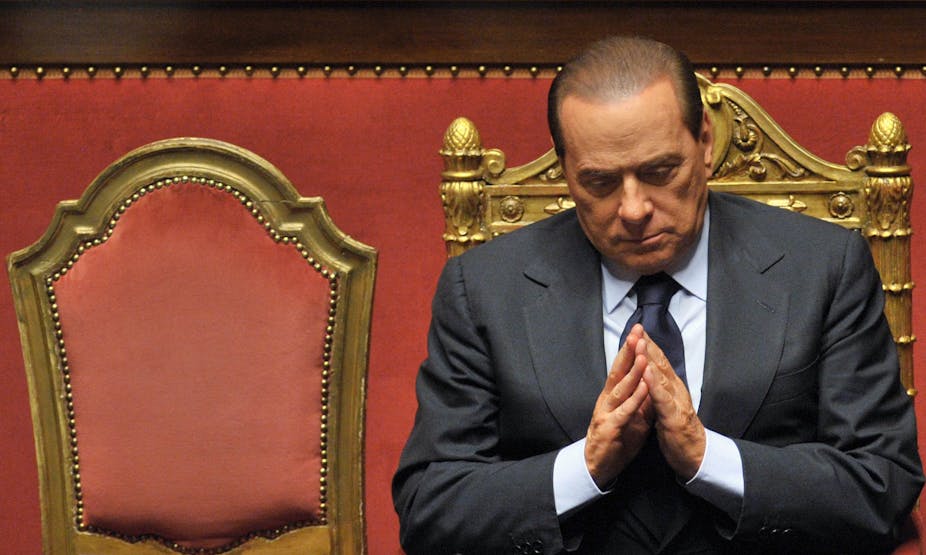Global markets have tumbled in the past 24 hours on fears over Italy’s worsening debt crisis, with media reports that Germany and France have begun talks to break up the Eurozone if the monetary union’s third-biggest economy becomes insolvent.
The Australian sharemarket opened more than 3% lower after the yield on Italian 10-year bonds passed the crucial threshold of 7% as investors rushed to offload their exposure to the country’s debt.
In the wake of the promised resignation of Italian Prime Minister Silvio Berlusconi earlier this week, the world is keeping a close watch on the outcome of talks to secure his successor and develop a strategy to manage the crisis.
Berlusconi’s decision to step down comes after several months of political conflicts coupled with the deepening of the Italian debt crisis. This decision was probably inevitable. He had lost the support of the parliament and a minority government, at this stage of the crisis, would neither be viable nor desirable.

Markets and European partners seemed to have lost confidence in Berlusconi, his cabinet, and his coalition, which in turn makes it much more difficult for Italy to find a way out of the crisis.
But Berlusconi should not be blamed as the only person responsible for the current economic situation. The Italian debt problem has its roots in the political economy of the 1980s, well before Berlusconi decided to enter the political arena.
The decline in economic growth and the stagnation of macroeconomic performance in the last two decades are the result of domestic structural weakness that none of the ten cabinets which have been in office since 1994 has been able to address through reforms.
Incidentally, Berlusconi headed only four of these ten cabinets, for a total of nine and half years out of 18 years.
Nevertheless, while Italian economic problems will not automatically disappear once Berlusconi steps down, his resignation might mark the beginning of a new phase in Italian politics and economics.
This raises the question of what will happen next. Several options are open. The President of the Republic, Giorgio Napolitano (who is ultimately responsible for a decision) might immediately call for new elections.
Alternatively, he may ask another leader of the centre-right coalition to replace Berlusconi and form a new government, possibly bringing some additional centrist parties on board.

The president may also try to steer the parliament towards the formation of a grand coalition to support a national emergency government. Finally, the president may decide to appoint a cabinet of technocrats (a “technical government” in the Italian jargon).
This is a cabinet of non-political specialists formally voted by a political majority in the parliament, but essentially detached from politics and supported and endorsed directly by the president.
Markets seem to favour this latter solution. The technocrats, being external to the political struggle, will not be concerned with the problem of being re-elected.
This should place them in a better position to make a concrete progress on a set of reforms which might, in the short term, leave many voters unhappy. This cabinet could also propose a much needed reform of the electoral system in preparation for new general elections in the second half of 2012 or early 2013.
Even more importantly, a cabinet of specialists would enjoy some considerable reputation and credibility among market operators and European partners.
Conversely, a new centre-right political government would probably suffer from the same deficit of credibility as the current Berlusconi government. A grand coalition would be difficult to form, given the ideological fragmentation of the parliament. Going back to the polls immediately would be probably the “second-best” option if a technical government were not possible.
The risk in this case is that elections might lead to a new political stalemate, with two fragmented coalitions that are unable to produce an effective government. Moreover, in Italy election campaigns last for two months.
These are 60 days that a country whose debt is under attack should not waste.

